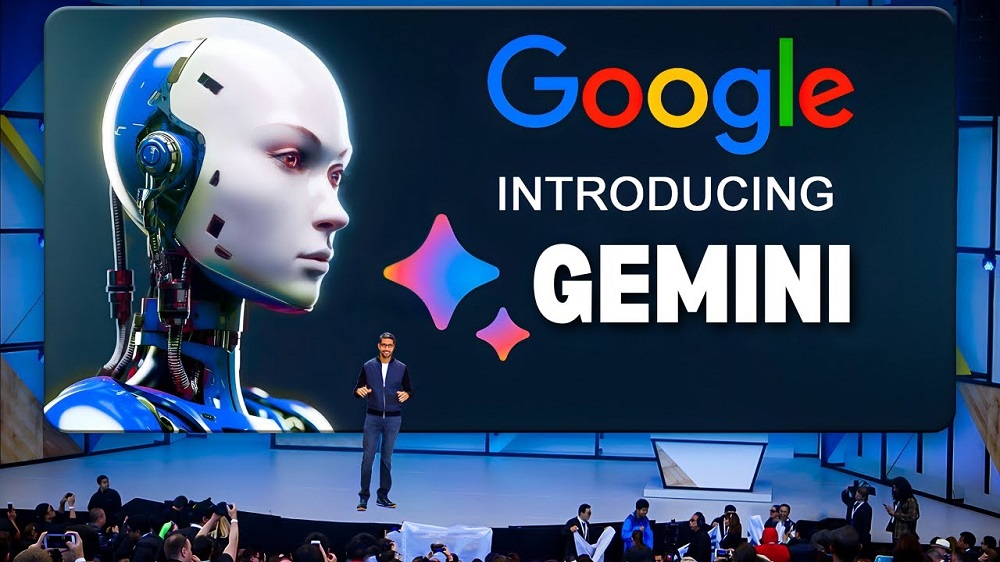The world of Artificial Intelligence (AI) is heating up! Microsoft is throwing its hat in the ring with a brand new, in-house AI language model called MAI-1. This development signifies a major step for Microsoft, putting them in direct competition with tech giants like Google and OpenAI in the race to develop the most powerful and versatile AI models.
Why is MAI-1 a Big Deal?

Large language models (LLMs) are essentially AI systems trained on massive amounts of data, allowing them to generate text, translate languages, write different kinds of creative content, and answer your questions in an informative way. Think of them as super-powered chatbots that are constantly learning and evolving.
Previously, Microsoft relied on collaborations with OpenAI, a research company with backing from Microsoft itself. However, MAI-1 represents a significant shift. It’s an entirely Microsoft-built model, designed to compete with the likes of Google’s LaMDA and OpenAI’s GPT-3.
Here’s what makes MAI-1 interesting:
- Internal Development: By building MAI-1 in-house, Microsoft gains complete control over the model’s development and future applications. This allows for greater customization and focus on areas that align with Microsoft’s specific goals.
- Headed by AI Expertise: Leading the MAI-1 project is Mustafa Suleyman, a renowned figure in the AI world. Suleyman co-founded Google DeepMind, a leading AI research lab, and brings a wealth of experience to the table.
- Powerhouse Potential: Reports suggest MAI-1 will be “far larger” than Microsoft’s previous AI models. This translates to a potentially more powerful and sophisticated language processing ability.
The Battle for AI Supremacy
The arrival of Microsoft’s MAI-1 throws gasoline on the fire of an already intense competition – the Battle for AI Supremacy. This isn’t a playground squabble; it’s a multi-billion dollar race between tech giants vying to develop the most powerful and versatile AI that will shape the future. Let’s delve deeper into the key players and their strengths:
Google: The Search Engine Giant with LaMDA in its Corner
Google, the undisputed king of search, isn’t about to cede control in the AI arena. Their weapon of choice? LaMDA (Language Model for Dialogue Applications). LaMDA isn’t just about generating text; it excels at engaging in open-ended, informative conversations. Imagine a search engine that not only delivers results but also interprets your intent and guides you through complex topics – that’s the potential of LaMDA. Google’s vast troves of data, accumulated through years of search queries and user interactions, fuel LaMDA’s ability to understand natural language with remarkable accuracy.
OpenAI: The Rebel with a Cause and GPT-3

OpenAI, an independent research company with backing from Microsoft, takes a different approach. Their champion is GPT-3 (Generative Pre-trained Transformer 3), renowned for its prowess in text generation. From crafting realistic dialogue to composing creative fiction, GPT-3 is a powerhouse for developers. OpenAI prioritizes open access and collaboration, offering developers a platform to experiment and push the boundaries of what GPT-3 can do. This fosters innovation and a vibrant developer community around the model.
Microsoft: The Challenger with MAI-1

Microsoft has traditionally relied on partnerships with OpenAI for its AI needs. However, with MAI-1, they’ve thrown down the gauntlet. Led by AI heavyweight Mustafa Suleyman, MAI-1 promises to be a formidable competitor. Early reports suggest it will be significantly larger than previous Microsoft models, hinting at potentially superior language processing capabilities. Whether MAI-1 focuses on rivalling LaMDA’s conversational skills or surpassing GPT-3’s creative prowess remains to be seen.
Beyond the Big Three: The Wildcard Players

This isn’t a three-horse race. Tech giants like Amazon, Baidu, and Alibaba are also heavily invested in AI development. Amazon’s Alexa and its underlying AI are already woven into millions of smart homes. Baidu, China’s search engine giant, is pouring resources into AI research, focusing on areas like facial recognition and autonomous vehicles.
The Stakes are High: Why Does AI Supremacy Matter?
The ramifications of AI supremacy extend far beyond bragging rights. The AI that emerges victorious will have a profound impact on various sectors:
- Revolutionizing Industries: From healthcare and finance to manufacturing and transportation, AI has the potential to streamline processes, optimize decision-making, and unlock new possibilities. The dominant AI model could become the backbone of innovation across numerous industries.
- Shaping the Future of Work: Automation powered by AI will undoubtedly change the job landscape. The winner of the AI race will influence how smoothly this transition occurs and what new opportunities arise in the AI-powered workforce.
- The Ethics of AI: As AI becomes more sophisticated, ethical considerations become paramount. Issues like bias, transparency, and accountability need careful consideration. The company leading the AI race will have a significant responsibility in shaping ethical frameworks for AI development and deployment.
The Battle for AI Supremacy is a race with no clear finish line. Each advancement by one player pushes the others to innovate further. This constant push and pull will ultimately benefit humanity by accelerating the development of powerful and versatile AI tools. However, navigating the ethical considerations and ensuring responsible development will be crucial in harnessing the power of AI for good.
The competition between these AI titans is a win for everyone. It will accelerate innovation, push the boundaries of what’s possible with AI, and ultimately lead to more powerful and versatile AI tools impacting various aspects of our lives.
What can we expect from MAI-1?
While details about MAI-1’s functionalities remain under wraps, here are some potential applications:
- Enhanced Productivity Tools: Imagine AI-powered assistants that can generate reports, translate documents on the fly, and even write different kinds of creative content tailored to your needs.
- Revolutionizing Search: AI models can potentially transform how we search for information. Imagine a search engine that understands the context of your query and provides more relevant and insightful results.
- Personalized Experiences: AI can personalize our experiences across various applications, from tailoring news feeds to recommending products and services that align with our interests.
The Road Ahead

The development of MAI-1 is still in its early stages. How it compares to Google’s LaMDA and OpenAI’s GPT-3 remains to be seen. Here are some intriguing questions to ponder:
- Will MAI-1 offer unique functionalities that set it apart from the competition?
- How will Microsoft integrate MAI-1 into its existing product suite?
- What are the ethical considerations surrounding the development and use of such powerful AI models?
The Future of AI

One thing is certain: the development of AI models like MAI-1 is pushing the boundaries of what’s possible. As AI continues to evolve, it has the potential to revolutionize various industries and aspects of our daily lives. The coming years will be fascinating as we witness the continued development and real-world applications of these powerful AI models.
Please share your thoughts in the comments. At theproductrecap.com, we are open to friendly suggestions and helpful inputs to keep awareness at peak.






